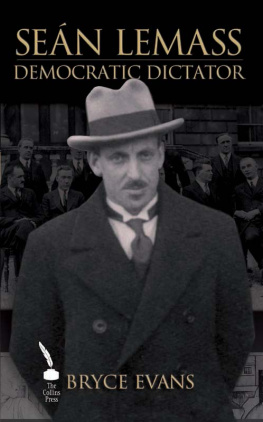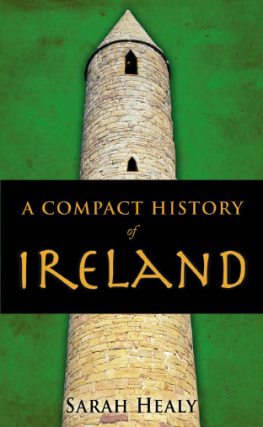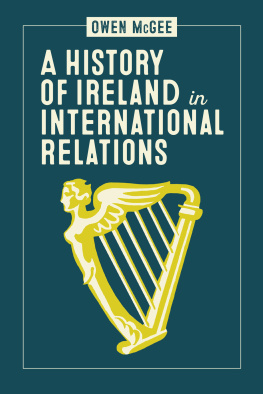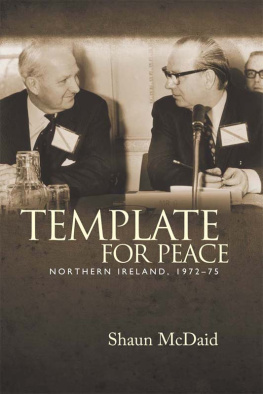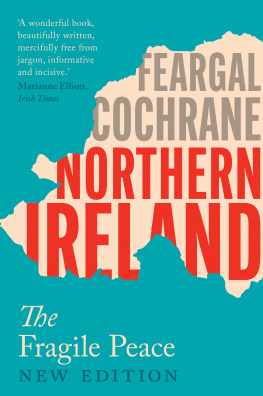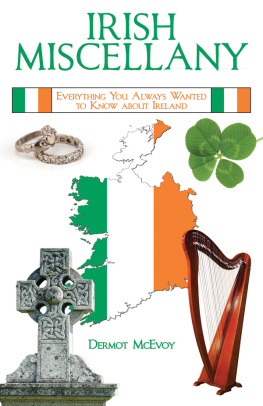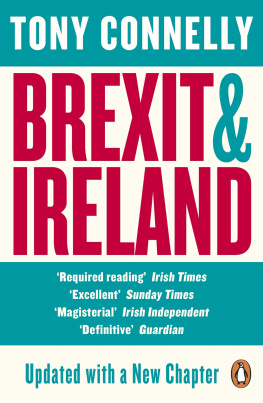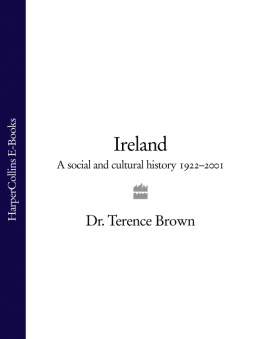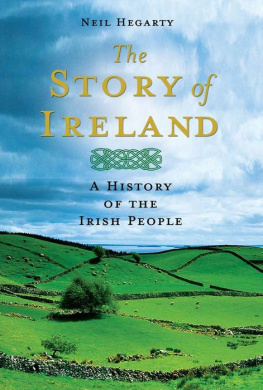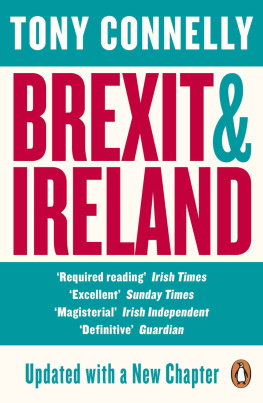Copyright Bryce Evans 2014
The right of Bryce Evans to be identified as the author of this work has been asserted by him in accordance with the Copyright, Designs and Patents Act 1988.
Published by Manchester University Press
Oxford Road, Manchester M13 9NR, UK
and Room 400, 175 Fifth Avenue, New York, NY 10010, USA
www.manchesteruniversitypress.co.uk
Distributed in the United States exclusively by
Palgrave Macmillan, 175 Fifth Avenue, New York,
NY 10010, USA
Distributed in Canada exclusively by
UBC Press, University of British Columbia, 2029 West Mall,
Vancouver, BC, Canada V6T 1Z2
British Library Cataloguing-in-Publication Data
A catalogue record for this book is available from the British Library
Library of Congress Cataloging-in-Publication Data applied for
ISBN 978 0 7190 8951 0 hardback
First published 2014
The publisher has no responsibility for the persistence or accuracy of URLs for any external or third-party internet websites referred to in this book, and does not guarantee that any content on such websites is, or will remain, accurate or appropriate.
Typeset
by SPi Publisher Services, Pondicherry, India
My greatest debt of gratitude is to Dr Susannah Riordan of University College Dublin, who provided judicious editorial suggestions, advice and encouragement.
Thanks also to Professor Michael Laffan, Professor Mary Daly, Professor Michael Kennedy, Professor Liam Kennedy, Professor Diarmaid Ferriter, Professor Sen Connolly, Dr Lindsey Earner-Byrne, Dr Stephen Kelly, Dr Maura Cronin, Dr Niall Carson, Dr Neal Garnham, Dr Seamus Helferty, Comdt. Victor Laing, Tom Clonan, Dr Marc Caball and all at the Humanities Institute of Ireland, as well as to Dr Liz Dawson and all the interviewees and staff in the archives listed in the bibliography, particularly the National Archives in Dublin.
My thanks to University College Dublin for the award of an Ad Astra research scholarship, which enabled the initial research, and to Liverpool Hope University for allowing me time to complete it.
Lastly, thank you to three strong women for their support Marian Carey, na MacNamara, and Greta Evans and also to my father, Peter Evans, for the incessant recital of those jigs, reels and ballads, which probably stirred something in me as a child.
1
Introduction: farewell to Platos Cave
And here Neutrality, harps, art exhibitions, reviews, libels, back-chat, high-tea, cold, no petrol, no light, no coal, no trains; Irish language, partition, propaganda, propaganda, propaganda, rumour, counter-rumour, flat Georgian facades, Guinness, double Irish, single Scotch, sherry, Censors, morals, rain home to all.
John Betjeman, 10 January 1941
The military and economic expansion of the state
At 11 am, on 3 September 1939, British Prime Minister Neville Chamberlain declared war on Germany. When the Irish government responded later that day, declaring the Emergency Powers Act, Irelands independence was just seventeen years old, its constitution two years old and its control of the strategic ports barely a year old. The Ireland that appeared in the letters of the poet John Betjeman, press attach to the British delegation in Dublin during the war, was a place of charm but hardship, anxiously asserting its neutrality as Britain and Europe burned. The political and economic crisis of the Second World War not only provided the acid test of this fledgling independence. Just as significantly, the war marked the high point of centralised state intervention in Ireland.
In taking these measures, the governments immediate priority was security. In January 1939, the Irish Republican Army (IRA) declared itself at war with Britain and affirmed its non-recognition of the Irish state. On 19 January 1939, Neville Chamberlains son escaped a bomb attack in Tralee, County Kerry.
While the security of the Irish state during the Emergency has produced racy narratives complete with Nazi espionage, as this new department gradually assumed dominance over economic life.
Other government departments also undertook wide-ranging interventionist projects. The Department of Agriculture introduced an unprecedented degree of state control to Irelands agricultural sector, evicting unproductive farmers from their land. A huge effort to produce domestic fuel through turf took place under the Department of Local Government and Public Health and later the Department of Supplies. The Customs Service dealt with the increase in volume of items smuggled across Irelands frontiers. Meanwhile, the Department of Justice and the Garda, assisted by the LSF and LDF and a cohort of Department of Supplies Inspectors, addressed the upsurge in crime and black marketing that accompanied the introduction of rationing in Ireland.
The narrative of absence
Despite this, the social and economic history of the Emergency is the subject of a largely deficient historiography which provides little indication of the manner in which Irish people survived the shortages wrought by war. Much responsibility for this rests with one of Irelands great historians: F.S.L. Lyons. In his majestic Ireland Lyonss invocation of the archetypal cave was a slicker articulation of the neutral condition. The analogy heavily influenced the historiography which followed it.
A noticeable historiographical tendency subsequently took shape in works about the Emergency written in the 1970s and 1980s. These works focused on the diplomatic construction of neutrality, exploring the realpolitik that underlay de Valeras diplomacy. Considerations of everyday life and the states increased domestic presence were placed to one side as the release of state papers illuminated the neutrality debate. Even the best general survey of the Emergency (published a decade after Lyons) extended Platos Cave backwards to the 1920s and 1930s, describing independent Ireland as suffering a postcolonial blackout.
Outside the minutiae of the neutrality debate, Irish society was described in rather puritanical, isolationist terms. Invariably, the widespread popular support for neutrality was presented as indicative of a mute bottom-up consensus in Irish society. The first perceptible charge out of Platos Cave was signalled by Bernard Share who, in his The Emergency: Neutral Ireland, 193945 (1978), argued that Lyons had exaggerated the stagnation of Irish society. If Share displayed recognition of the poverty of the narrative of absence, he offered little by way of alternative analysis.
By the late 1980s, the historiography of the Emergency was starting to edge away from the marble halls of high political accounts towards bottom-up considerations of life in Ireland. But these early revisions of Platos Cave tended to dilute the economic impulses driving government action and its impacts by trivialising the narrative of absence. During the Emergency, the widely quoted Myles na gCopaleen contributed some of his most biting satire in the column Cruiskeen Lawn in the Irish Times, but his references to the plain people of Ireland sat too long as a waggish substitute for an analysis of social and economic conditions at the time. Leaning heavily on the golden age of Dublin journalism, much of Tony Grays


